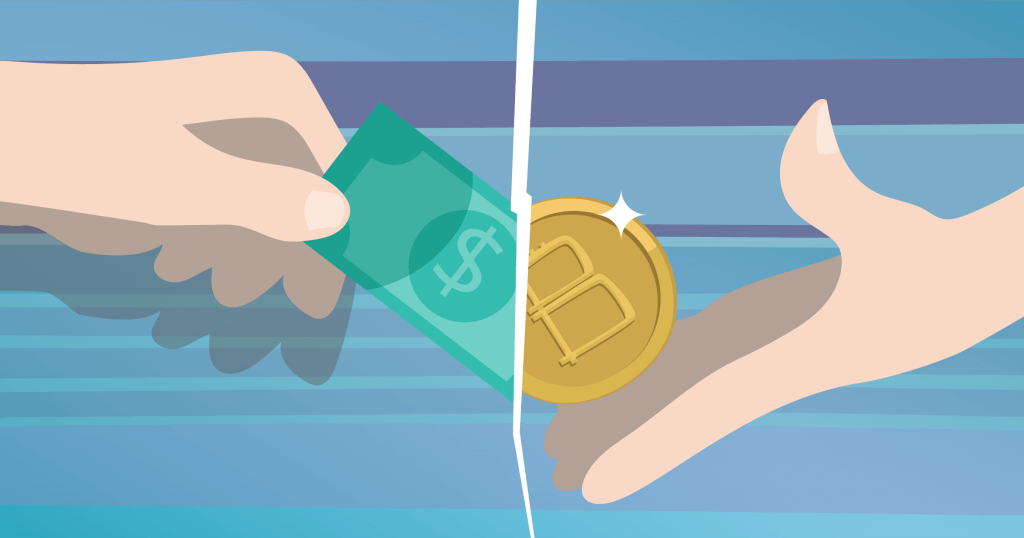So You Want to Buy Bitcoin
Published 20 Feb 2018

Disclaimers
I’m not your financial advisor. This is not financial advice. I’m just a person on the internet that has opinions and experiences that I will share.
Ground Rules
Before you dive in, please read and take these ground rules to heart. Anyone that has lost money buying and selling cryptocurrencies will tell you that if they had followed these basic rules they would probably be much better off today. I personally broke rule #4 and lost a lot of coins that I left on shady exchanges early on (farewell dogecoins!). Now I generally allow no more than 10% of my coins to be left on exhanges. If none of these words make sense, don’t worry, read on.
- Never invest more than you are comfortable losing. Some people are OK risking $5, some $10,000. Decide what works for you.
- Don’t make a decision based on emotion - especially FEAR. Fear of missing out (FOMO) when news is positive and prices are soaring, or fear of losing your money when news is negative and prices are dropping. Emotions are easily manipulated. Take a deep breath and take your time.
- Take security seriously. Now is not the time to use your pet’s name as your password. Use strong passwords. I recommend using a password manager that can generate huge random passwords and store them for you. Check out 1Password, Dashlane, or KeePass. Create a master password using the Dice method.
- Don’t trust anyone. Never leave large amounts of cryptocurrency on an exchange. As your portfolio grows in value you want to be in control of the keys to access most of your coins. Research and learn to use paper wallets or hardware wallets like the Trezor or Ledger Nano S.
Where to Buy Bitcoin
First, if you are wondering why would anyone want to buy bitcoin. Go back and read my previous post - The Why of Bitcoin.
If you are in the U.S. one of the easiest places to buy Bitcoin, Bitcoin Cash, Ethereum, or Litecoin is on Coinbase. Coinbase is an exchange (like a brokerage) located in the U.S., and accounts there are FDIC insured like banks are. They have growing pains now and then, but are very reputable. The four cryptocurrencies they support can then be used later if you develop an interest in other cryptocurrencies or ICOs (initial coin offerings). Other popular exchanges include Binance, Bitstamp, Gemini, and Kraken. But if you are new to all this, Coinbase is likely your easiest entry point. If you decide to use Coinbase, use this Coinbase invite link and we will both get $10 of free bitcoin if you buy or sell $100 worth of any of their supported cryptocurrencies.
Which Cryptocurrency Should I Buy?
At the time of writing this, most cryptocurrency prices are tend to move in the same direction. When Bitcoin is going up, the other coins are going up. When Bitcoin prices are dropping, alt coins are generally also dropping. There are exceptions, but this is generally true. Read up a bit on the differences between the major cryptos and choose your favorite to get started. Here are the super basics:
- Bitcoin (BTC) - Largest marketcap, most users, most established network.
- Bitcoin Cash (BCH) - Offshoot of Bitcoin with larger block size. Has lower fees for transactions.
- Litecoin (LTC) - Faster confirmation time (~2.5 minutes) than both Bitcoin types (which are ~10 minutes), lower fees than BTC.
- Ethereum - Fast confirmation time (~15 seconds). Ethereum is not just money but a platform for building decentralized applications using smart contracts.
A Side Note on Bitcoin vs Bitcoin Cash
There is a lot of drama between Bitcoin and Bitcoin Cash supporters regarding which one is the “real” Bitcoin. The split came about due to disagreements on how best to scale the technology. Bitcoin developers wanted to persue off chain scaling solutions like SegWit and Lightning Network. Bitcoin Cash developers wanted to implement bigger block size so that more transactions could fit in each block that gets added to the blockchain every 10 minutes or so. Bitcoin has become a bit like a savings account, and Bitcoin Cash like a checking account. Just keep in mind this analogy is an oversimplification and can easily change as the technology evolves.
How much should I buy?
See rule #1 in the ground rules again. One strategy that is tried and true in investing is called dollar cost averaging. Instead of buying one large sum right now, you can set up automatic recurring purchases of a smaller amount. For example instead of buying $1000 in bitcoin now, you could buy $100 and set that transaction to repeat once a month. This helps to prevent the notorious volatility from biting you in the ass. A downside is that you will pay more in transaction fees averaging in over multiple transactions.
Summary
Start small, don’t act on fear, take it slow, learn as you go, be smart and secure. Have fun! If you’d like to learn more here are some resources that I have found valuable:
News, Essays, Blogs
Videos
- Bitcoin for Beginners Playlist
- Banking on Bitcoin Documentary (also available on Netflix)
- Bitcoin History: From the Cypherpunk Movement to JPMorgan Chase History Lecture
- Boxmining YouTube channel - nice daily updates
Podcasts
Want even more? Here’s a huge list of Bitcoin resources that could keep you busy for weeks if not months. Have fun going down the crypto rabbit hole!